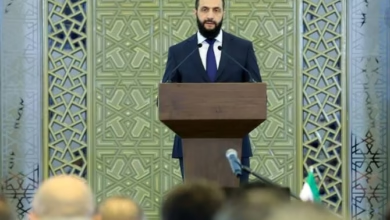
In a historic moment for Canadian politics, Mark Carney, former central banker and prominent economist, was sworn in as Canada’s 31st Prime Minister on Friday, marking the end of Justin Trudeau’s nearly decade-long tenure. Carney, who succeeded Trudeau amidst mounting political pressure, wasted no time in making his approach clear, promising to reshape Canada’s relationship with the United States under President Donald Trump.
Carney, 59, had long been seen as a potential leader due to his global economic experience, having served as Governor of both the Bank of Canada and the Bank of England. Despite his lack of direct political experience, Carney’s rise to the top position was swift, with his leadership bid culminating in a decisive victory within the ruling Liberal Party. His swearing-in ceremony on Friday set the stage for what promises to be a new era of Canadian leadership.
One of Carney’s first significant statements addressed the contentious relationship between Canada and the U.S. under the Trump administration. While acknowledging the challenges posed by President Trump’s policies, Carney expressed optimism about the potential for cooperation. “We respect President Trump. He has placed key issues on the global agenda, and we understand the priorities of his administration,” Carney told reporters after the ceremony.
Having previously interacted with Trump at international forums, Carney emphasized that he believed mutual solutions could be found, despite their differing positions. “Both President Trump and I are looking out for the interests of our countries. We can find common ground,” Carney added. He also dismissed Trump’s past rhetoric regarding the annexation of Canada as “crazy,” underscoring his firm stance on maintaining Canadian sovereignty.
In addition to signaling his approach to the U.S., Carney wasted no time in reorganizing his cabinet, reflecting his intention to focus on managing Canada’s relations with Washington. His newly-formed cabinet is notably smaller than that of his predecessor, with several key changes aimed at fortifying Canada’s diplomatic and economic position.
Notably, Carney appointed Francois-Philippe Champagne, Canada’s Innovation Minister, to the crucial role of Finance Minister, replacing Dominic LeBlanc. LeBlanc, who had served as Finance Minister under Trudeau, now takes on the responsibility of handling international trade. Meanwhile, Melanie Joly remains in her post as Foreign Minister, a role critical for maintaining Canada’s global standing.
Among the most significant policy changes Carney announced was the swift elimination of the controversial carbon tax, a hallmark of Trudeau’s economic agenda. During his first cabinet meeting, Carney signed an order to scrap the tax, citing its negative impact on hard-pressed Canadian families. “This will make a difference to the lives of ordinary Canadians,” Carney told his ministers.
While Carney’s cabinet is set to confront immediate economic challenges, including a looming federal election expected to take place by October 20, his government is already facing intense scrutiny from opposition parties. The Conservatives, led by Pierre Poilievre, have been critical of Carney’s Liberal ties, pointing to his involvement in the previous government’s fiscal policies, including the carbon tax and rising national debt. Poilievre took to social media, stating, “100% of Carney’s ministers were part of Trudeau’s caucus—responsible for skyrocketing housing costs and rising food bank usage.”
Despite the immediate opposition, Carney is already preparing for the political challenges ahead. Liberal insiders suggest he may call a snap election within the next two weeks, a move that could shift the political landscape dramatically. However, if Carney delays the election, opposition parties have indicated they may unite to force a vote of no confidence in his minority government.
Carney’s appointment marks the start of a new chapter for Canada, with many eyes on how he will balance the nation’s interests with those of a powerful neighbor to the south. While his cabinet reshuffle and economic decisions have already made waves, the upcoming federal election will likely determine whether Carney’s leadership is a lasting success or a temporary solution to Canada’s political challenges.
Looking ahead, Carney has already planned trips to London and Paris to solidify Canada’s relationships with key European allies, as tensions with the U.S. continue to mount. Despite the hurdles he faces, Carney remains confident that he is well-positioned to navigate the complexities of global diplomacy, economic recovery, and domestic governance. The coming weeks will likely provide more clarity on whether his leadership will meet the expectations of Canadians and international observers alike.
A New Era for Canada’s Leadership
Mark Carney’s ascension to the role of Prime Minister represents a significant departure from the leadership style of his predecessor. Whether his focus on pragmatism, economic stability, and diplomacy will steer Canada through its current challenges remains to be seen. As the political landscape shifts, Carney’s ability to collaborate with both U.S. President Trump and his own political opposition could determine the future of Canada’s governance and its position on the world stage.
- Source: Reuters








